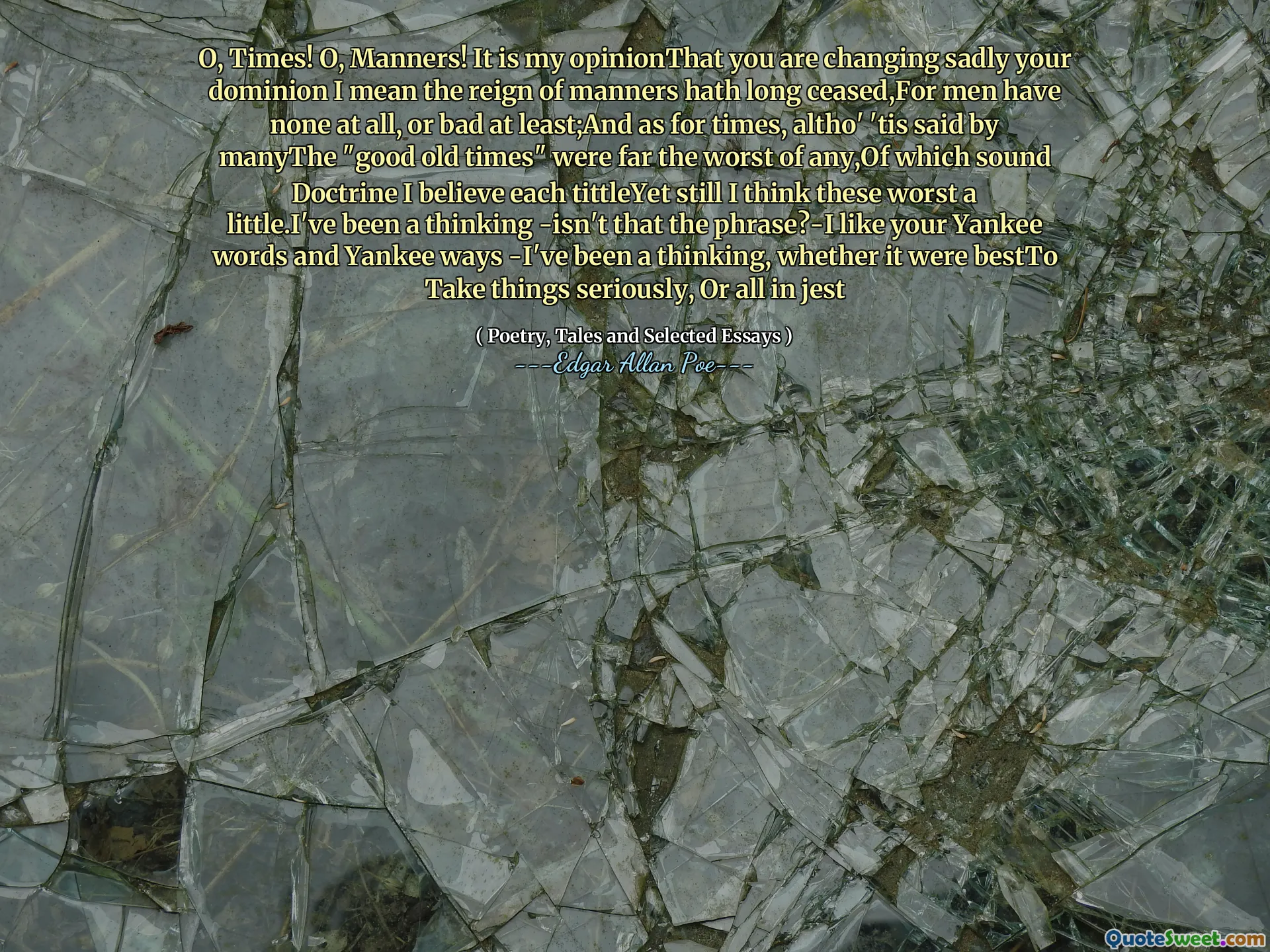
O, Times! O, Manners! It is my opinionThat you are changing sadly your dominion I mean the reign of manners hath long ceased,For men have none at all, or bad at least;And as for times, altho' 'tis said by manyThe "good old times" were far the worst of any,Of which sound Doctrine I believe each tittleYet still I think these worst a little.I've been a thinking -isn't that the phrase?-I like your Yankee words and Yankee ways -I've been a thinking, whether it were bestTo Take things seriously, Or all in jest
The passage reflects on the changes in social norms and behavior, suggesting a decline in the quality of manners over time. The speaker notes that there seems to be a lack of good manners among people, indicating that the current state of civility is poor, if not worse than in the past. Despite this observation, there is a recognition that nostalgia for "the good old times" might be misplaced, as those times were likely not as good as some believe.
The speaker contemplates the balance between taking life seriously and treating it lightly. This inner reflection on how to approach life is tied to the broader themes of change in society and the conflict between idealism and reality. Ultimately, the speaker is pondering whether a serious or a humorous outlook is more appropriate in such a chaotic world.






